When it comes to designing a shower, one crucial element that can enhance both the functionality and aesthetics of the space is the choice of wall and floor tiles. Selecting the right tiles for your shower is not only a matter of style but also durability, water resistance, and ease of maintenance. In this article, we will provide you with valuable tips to help you make an informed decision when it comes to choosing wall or floor tiles for your shower. 1. Consider the material: Different tile materials offer varying levels of durability, water resistance, and maintenance requirements. The most common options for shower tiles include ceramic, porcelain, natural stone, and glass. While ceramic and porcelain are known for their affordability and easy maintenance, natural stone provides a luxurious and organic feel. Glass, on the other hand, adds a touch of elegance and light to the space. Consider your priorities and budget before selecting the best material for your shower tiles. 2. Focus on slip resistance: Safety is paramount when it comes to choosing tiles for your shower.
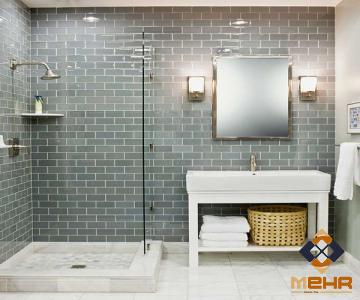
.
 Opt for tiles with a high slip resistance rating, especially for the shower floor, to minimize the risk of accidents. Look for tiles with textured or matte finishes, as they provide better traction and grip under wet conditions. Pay attention to the coefficient of friction (COF) rating, with a higher value indicating better slip resistance. 3. Ensure water resistance: One of the primary purposes of shower tiles is to repel water and prevent moisture from seeping into the underlying structure. When selecting your shower tiles, ensure they have a high water absorption rating (typically less than 0.5%) to protect against water damage and mold growth. Additionally, consider adding a waterproofing membrane behind the tiles to provide an extra layer of protection. 4. Evaluate durability: Shower tiles should be able to withstand frequent exposure to water, steam, and cleaning products without losing their quality or appearance. Look for tiles that have a high abrasion resistance rating to ensure they maintain their beauty and integrity over time. Consider factors such as resiliency to scratching, staining, and chipping, especially for high-traffic areas like the shower floor.
Opt for tiles with a high slip resistance rating, especially for the shower floor, to minimize the risk of accidents. Look for tiles with textured or matte finishes, as they provide better traction and grip under wet conditions. Pay attention to the coefficient of friction (COF) rating, with a higher value indicating better slip resistance. 3. Ensure water resistance: One of the primary purposes of shower tiles is to repel water and prevent moisture from seeping into the underlying structure. When selecting your shower tiles, ensure they have a high water absorption rating (typically less than 0.5%) to protect against water damage and mold growth. Additionally, consider adding a waterproofing membrane behind the tiles to provide an extra layer of protection. 4. Evaluate durability: Shower tiles should be able to withstand frequent exposure to water, steam, and cleaning products without losing their quality or appearance. Look for tiles that have a high abrasion resistance rating to ensure they maintain their beauty and integrity over time. Consider factors such as resiliency to scratching, staining, and chipping, especially for high-traffic areas like the shower floor.
..
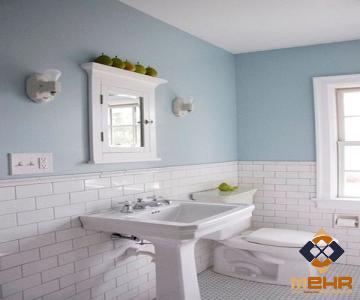 5. Consider maintenance requirements: Select tiles that are easy to clean and maintain, as the shower is a space that requires regular upkeep. Generally, ceramic and porcelain tiles are effortless to clean, as they are non-porous and resistant to stains. However, natural stone tiles may require sealing to prevent staining or etching. Glass tiles, while beautiful, may need more regular cleaning to maintain their sparkle and transparency. Make sure you understand the maintenance needs of your chosen tiles before making a final decision. Conclusion: Choosing the right wall or floor tiles for your shower can significantly impact both the functionality and style of your bathroom. By considering factors such as material, slip resistance, water resistance, durability, and maintenance requirements, you can make an informed decision that suits your preferences, budget, and lifestyle. Remember to consult with professionals to ensure proper installation and maximize the longevity of your shower tiles.By following these tips and considering your specific needs, you can create a shower that not only meets your functional requirements but also adds beauty and value to your bathroom space. Once you have chosen the ideal material and style, it’s important to work with a reputable tile supplier or installation professional.
5. Consider maintenance requirements: Select tiles that are easy to clean and maintain, as the shower is a space that requires regular upkeep. Generally, ceramic and porcelain tiles are effortless to clean, as they are non-porous and resistant to stains. However, natural stone tiles may require sealing to prevent staining or etching. Glass tiles, while beautiful, may need more regular cleaning to maintain their sparkle and transparency. Make sure you understand the maintenance needs of your chosen tiles before making a final decision. Conclusion: Choosing the right wall or floor tiles for your shower can significantly impact both the functionality and style of your bathroom. By considering factors such as material, slip resistance, water resistance, durability, and maintenance requirements, you can make an informed decision that suits your preferences, budget, and lifestyle. Remember to consult with professionals to ensure proper installation and maximize the longevity of your shower tiles.By following these tips and considering your specific needs, you can create a shower that not only meets your functional requirements but also adds beauty and value to your bathroom space. Once you have chosen the ideal material and style, it’s important to work with a reputable tile supplier or installation professional.
…
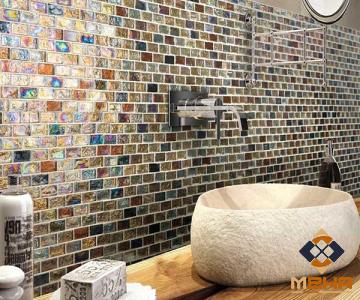 They can guide you through the process, provide expert advice, and ensure proper installation to maximize the longevity and performance of your shower tiles. In addition to the tips mentioned above, it’s worth mentioning that color and pattern selection can also play a significant role in the overall aesthetics of your shower space. Lighter-colored tiles can make a small shower appear more spacious and brighter, while darker hues can create a cozy and intimate atmosphere. Consider your existing bathroom decor and personal preferences to choose a color scheme that complements the overall design. To complete the look of your shower, you may also wish to consider coordinating the tiles with other elements such as shower fixtures, faucets, and accessories. This can help create a cohesive and seamless design that ties the entire shower area together. In conclusion, choosing the right wall or floor tiles for your shower is a crucial decision that requires careful consideration. By evaluating factors such as material, slip resistance, water resistance, durability, maintenance requirements, color, and pattern, you can make an informed decision and create a shower space that is both functional and aesthetically pleasing. Remember to seek professional assistance and ensure proper installation for the best results.
They can guide you through the process, provide expert advice, and ensure proper installation to maximize the longevity and performance of your shower tiles. In addition to the tips mentioned above, it’s worth mentioning that color and pattern selection can also play a significant role in the overall aesthetics of your shower space. Lighter-colored tiles can make a small shower appear more spacious and brighter, while darker hues can create a cozy and intimate atmosphere. Consider your existing bathroom decor and personal preferences to choose a color scheme that complements the overall design. To complete the look of your shower, you may also wish to consider coordinating the tiles with other elements such as shower fixtures, faucets, and accessories. This can help create a cohesive and seamless design that ties the entire shower area together. In conclusion, choosing the right wall or floor tiles for your shower is a crucial decision that requires careful consideration. By evaluating factors such as material, slip resistance, water resistance, durability, maintenance requirements, color, and pattern, you can make an informed decision and create a shower space that is both functional and aesthetically pleasing. Remember to seek professional assistance and ensure proper installation for the best results.

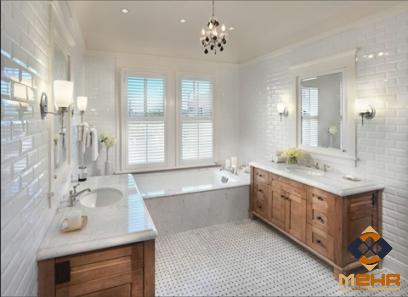



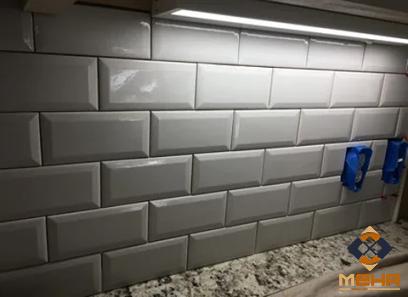


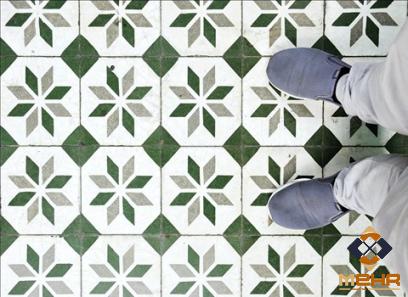
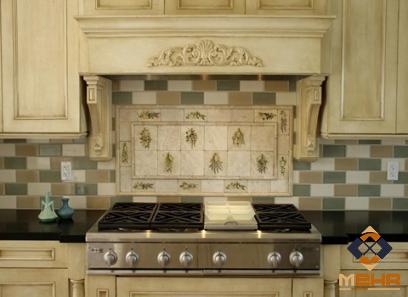
Your comment submitted.